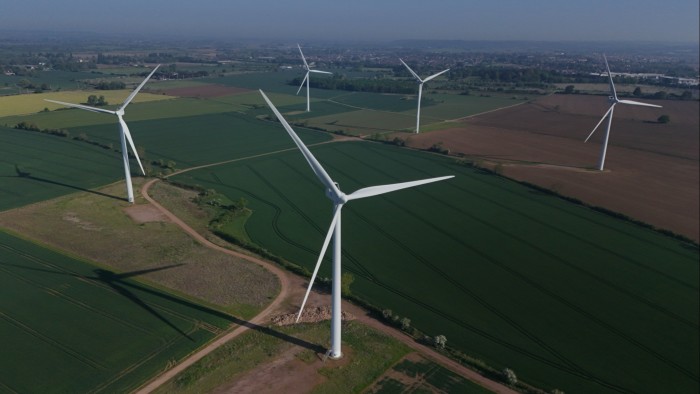Unlock the Editor’s Digest for free
Roula Khalaf, Editor of the FT, selects her favourite stories in this weekly newsletter.
The big question over the Labour government’s goal of providing the UK with clean power by 2030 is not whether it is achievable — it is probably not — but whether having such aspirational targets is helpful. The answer to that is a qualified yes.
Delivering clean power by the end of this decade — an achievement defined as the UK getting just 5 per cent of its power from unabated gas in a year with typical weather — requires considerable growth in renewables. Wind, solar, batteries and nuclear power capacity would need to rise from about 60 gigawatts today to almost 160GW, according to the Department for Energy Security and Net Zero. And it requires installing 5,500km of new grids, thinks consultancy Aurora, or double what the UK has managed over the past decade.
While the government has pointed to the strength of its offshore wind project pipeline and maintains it can reach its targets, it is clearly setting a high bar.
Big ambitions can present organisations of all kinds with problems. Those in charge may make suboptimal choices in the desperate attempt to clear their hurdle — and become demotivated by an endless stream of discouraging newsflow as the target moves further and further out of reach.
In the case of UK energy, one problem is that as everyone piles in to increase capacity, the system bumps up against constraints and costs rise. The offshore wind sector, globally, is already suffering from higher interest rates and supply chain inflation. Danish group Ørsted recently halted work on the large Hornsea 4 project on the basis that it could no longer make its numbers stack up.
It is always tempting to keep up with the Joneses, especially as other countries appear to be racing ahead. The EU is already within range of its 2030 target of reducing CO₂ emissions by 55 per cent. But comparison can be deceptive. The UK has also reduced its overall emissions by a similar amount, and such measures are flattered by the dispiriting performance of the European industrial sector.
Ambition, at the very least, spurs action. In the UK’s case, BNEF sees clean power generation capacity rising to about 130GW by 2030 — not quite reaching the numbers implied by the country’s target, but still showing impressive growth. And efforts to speed up permitting and reform the grid connection process are under way. If UK policymakers want to pick a tough road despite the potential fallout from failure, then more power to them.
